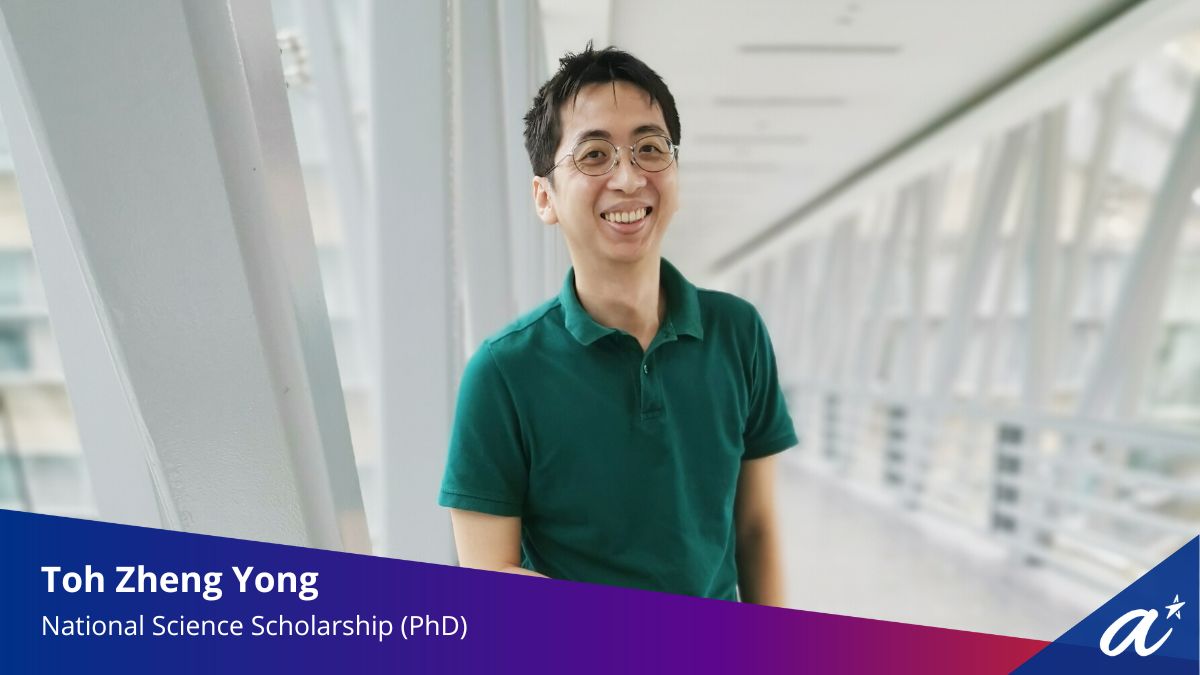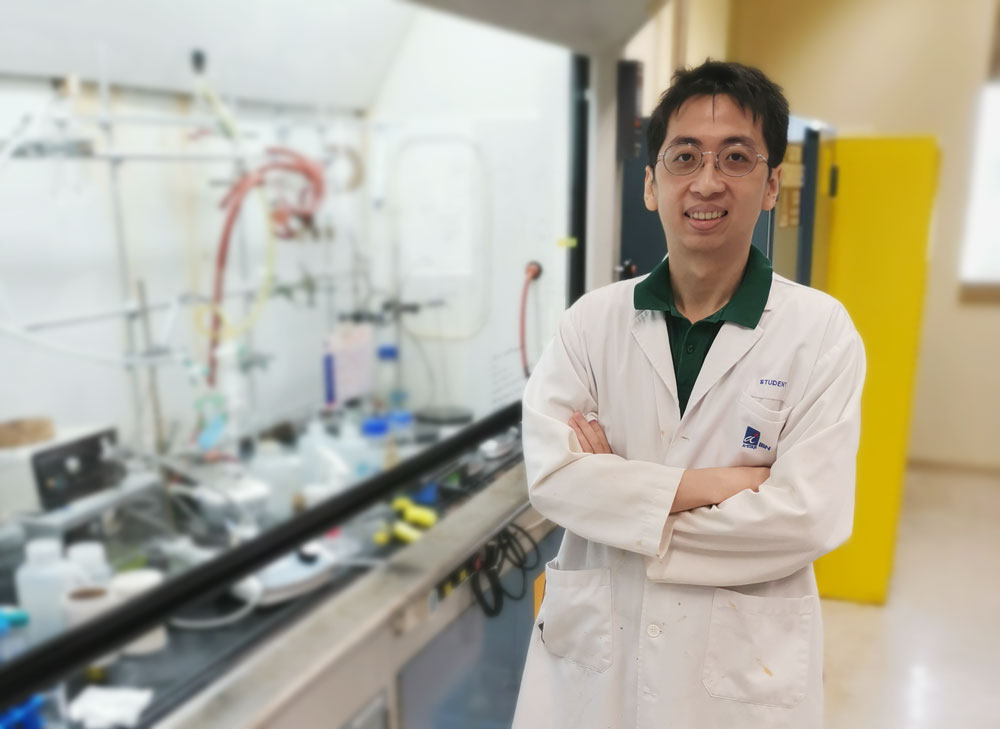National Science Scholarship (PhD) SCHOLAR

Negative Data Is Good Data Too
Undertaking not one, but two degrees concurrently and making the Dean’s list for both, NSS (PhD) scholar Toh Zheng Yong excelled in both bachelor’s programmes in aerospace engineering and economics.
To many, the two disciplines are worlds apart – one deals in physical sciences and the other studies intangibles like the economy and inflation. Yet Zheng Yong sees the connections between disparate subjects. To him, economics is about understanding the principles behind how the economy functions in the same way engineering requires a good understanding about the physical laws that affect mechanical machines.
Studying economics helped him understand the art of decision-making process. When one does not understand the principles behind a situation, it is easy to make bad decisions. That understanding gave him an edge when his research projects were ready to be implemented in the real world. He also added that he really enjoyed the subject, as it helped him broadened his horizons.
Not shying away from the extra work and rigour, he admits it was hard work and had to sacrifice time spent on his hobbies. He muses, “I dislike studying but I love to know things”.
The problem-solver
Zheng Yong dwells on problems. For example, if he encounters an unfamiliar equation, instead of tackling it immediately, he deconstructs it: What does this term mean? Why is it to this power? What happens when the variables become very small or large? He will not apply the equation unless he had understood all its components.
After graduation, he put his personal ethos to the test, doing more de-constructing and re-constructing. He was part of the team at an aerospace company that converts passenger planes into freight planes. Then, during the pandemic, as passenger traffic had ground to a halt and the world needed more cargo space. He entered the industry at a critical time and was able to contribute to the pandemic effort.
However, the job, which involved a lot of engineering and re-engineering, helped him learn something important about his own aspirations. While he appreciated the importance of engineering in maintaining the day-to-day functioning of systems and machines, he realised his own interest was in developing new products and improving what had already been built. He applied for and was awarded the A*STAR National Science Scholarship (NSS) (PhD) - Scholarship, to pursue a career in research, to create products and technologies that would make benefit mankind.
Before heading to Massachusetts Institute of Technology (MIT) to do his master’s and his PhD, he is now doing the one-year pre-departure attachment at the A*STAR NanoBio Lab. While his background is Aerospace Engineering, he chose to pursue something on a completely different scale, working with atoms and molecules, which are measured at nanometres. To put it in perspective, a human hair ranges from 105 to 106 nanometres wide.
His current project involves working with a team to create the next generation of batteries. If the energy density of a battery can be increased, devices would become smaller, weigh less, and have longer lasting battery life. With a breakthrough in the manifold increase density, next-generation innovations such as electric passenger planes would shortly follow. He may continue working with batteries for his PhD, or he may not. He will decide after he has spent more time working with batteries. But one thing is clear, it will a career grounded in science.
What quality is needed to become a scientist
How does one know whether one is suitable to be a scientist or not, especially as the journey is so long and littered with failed experiments? Zheng Yong suggests that one asks two questions.
The first, “When you are faced with a science problem at school or at work, do you think about it a lot? For example, while travelling on the MRT, does your mind wander to finding a solution for it? If that is you, then yes, become a scientist.”

The second question is: Do you embrace negative data?
Zheng Yong explains. While seemingly demoralising, negative data is also good data and in fact, plays a very important role in any research. If there were only positive data, then, in the vacuum of not having any other data, there would be nothing to test a hypothesis against.
Zheng Yong embraces the universe of both successful and failed experiments, good data and bad data, and studies them to uncover the rules that govern a phenomenon. That, combined with his critically analytical mind, we know he will not let anything stand in his way. Zheng Yong, we wish you all the best and lots of success wandering down rabbit holes!
A*STAR celebrates International Women's Day

From groundbreaking discoveries to cutting-edge research, our researchers are empowering the next generation of female science, technology, engineering and mathematics (STEM) leaders.
Get inspired by our #WomeninSTEM

